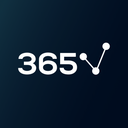Want to break into a career in data science?
The first step involves acquiring the right qualifications. These act as a clear signal to potential employers that you are equipped with the necessary skills and commitment required to thrive in this challenging yet rewarding field.
But what are the best qualifications for a data scientist?
In this article, we’ll focus on the most common data science degrees, explore some viable options for postgraduate study, and discuss some popular online data science degrees. These will help you decide what qualification is worth pursuing, or if your current degree is suitable for the field.
We will be referencing various research that we have conducted over the last 4 years. This includes a study into actual data scientist profiles on LinkedIn, along with their education and prior experience. It also includes research into the 2024 data science job market to identify the required credentials for the field.
Table of Contents
Why a Data Science Bachelor’s Degree is All You Need to Succeed
How to Choose the Best Data Science Degree?
Is Data Science the Best Undergraduate Degree?
Is University Ranking More Important than My Degree?
Best Data Science Bachelor’s Degrees: Overview
Why a Data Science Bachelor’s Degree is All You Need to Succeed
Our research has indicated that there is increasing emphasis on less traditional education. Here’s what we found:
1. Employers’ expectations are changing.
Our research finds that the clearest path toward a career in data science is through higher education. But this is starting to change.
Back in 2021, our LinkedIn results found that virtually all data scientists (91%) had graduated from an institution of higher education.
This often means a master’s or PhD in data science. Only about 12% of the data scientists worldwide entered the field with only an undergraduate degree. In some countries like India, however, the number goes up to 31%.
Our research into 1,000 data science job postings for 2024, on the other hand, found that bachelor’s degrees are becoming increasingly valued. In terms of data scientist qualifications, 24% of job ads mentioned PhDs, 30% mentioned master’s degrees, and 20% mentioned bachelor’s degrees—that’s 8% more than what we found 3 years ago.
On top of this, more than a quarter of the job postings didn’t mention a required education level. This indicates that these employers might be open to less traditional forms of education.
So, even though graduate degrees still hold primacy, there are many jobs available for those only holding an undergraduate degree. A qualified candidate today has a higher chance of breaking into the field without a graduate degree, compared to 3 years ago.
Additionally, upskilling opportunities such as online data science programs are becoming more and more accepted by employers. So, if you think an undergraduate degree is as high as you want to go, you can supplement your qualifications with on-demand lessons while working and gaining practical experience.
Explore 365 Data Science's comprehensive courses, hands-on projects, and valuable resources to elevate your skills and advance your career in the lucrative field of data science.
2. Undergraduate data science degrees take less time and money.
A data science master's in the US typically lasts between 1.5 to 2 years. Meanwhile, a PhD can take anywhere from 5 to 8 years to complete. Both are in addition to the 4 years taken for a bachelor's degree.
You might then be asking: ‘Is a graduate degree worth it?’
Technically, a master’s degree promises to make landing an entry-level data science job quicker. Our research indicates that the typical experience requirements for data scientist roles are approximately 3.5 years for individuals holding a bachelor's degree, while it reduces to about 2.5 years for those with a graduate degree.
Essentially, having a master's degree as opposed to a bachelor's degree in data science equates to about a year's difference in field experience. But if you spend two years earning your master's degree, the difference between holding an undergraduate and a graduate degree becomes less significant.
Considering the costs involved in pursuing postgraduate study is also important. In the US, the average tuition fee for the best data science master's programs is around \$70,000, while in Canada, it's approximately \$9,000.
Clearly, a master's degree is a significant commitment, especially if a bachelor's degree is sufficient for your dream career.
That’s why many aspiring data scientists are looking towards alternatives like online data science degrees. The MITx MicroMasters Program in Statistics and Data Science is a one-year program that costs between \$1350-\$1500, takes about 10 hours a week, and is entirely online. And if you want to outshine the competition, the MITx program offers a pathway to the Harvard data science course.
3. A BA in a data science-related field prepares you for the hottest entry-level jobs.
A bachelor’s degree in data science or a related field opens up a variety of entry-level job opportunities. Here are some potential roles and the level of education that may be needed or beneficial:
Data Analyst
Education: A graduate degree is generally not required. 45% of 2024 job postings only required undergraduate degrees. Specific certifications in data analysis tools (e.g., Python, R, SQL), however, can be advantageous.
Junior Data Scientist
Education: A bachelor’s degree is typically satisfactory for entry-level positions. But some roles may prefer candidates with a data science master's degree or equivalent experience gained through internships or projects. The most frequently mentioned degree required for data scientists in our 2024 market research was a master’s degree (30%), but bachelor’s degrees were also sought-after (20%).
Data Engineer
Education: Our 2024 market research found that the most frequently mentioned (40%) education level was a bachelor’s degree. Certifications in programming languages (e.g., Python, Java, Scala) and knowledge of big data technologies (e.g., Hadoop, Spark) are also highly beneficial.
Business Intelligence (BI) Analyst
Education: Graduate education is not usually required. Certifications in BI tools (e.g., Tableau, Power BI) and experience with data visualization will increase your competitiveness in the job market.
Machine Learning Engineer
Education: While holding a graduate degree or relevant certification in machine learning or artificial intelligence can be beneficial, it is possible to find entry-level positions requiring just a data science bachelor’s degree. In 2024, about 30% of machine learning engineer job postings mentioned the need for a PhD, 25% mentioned a master's, and 20% noted a bachelor's degree.
Data Architect
Education: Graduate degrees are not typically required for entry-level positions. Experience with database management and architecture is essential.
Data Storyteller
Education: A bachelor’s degree is sufficient. Strong communication skills and experience with data visualization tools are key. Courses in storytelling with data can be helpful.
Clearly, the answer to the question ‘What degree does a data scientist need?’ depends on your desired job title. There are many opportunities in data-related roles for those with an undergraduate education. But if you're considering further education, here are some roles that might pique your interest.
Data Science Consultant
Education: Typically requires a data science master’s degree or MBA, especially for more competitive positions. Experience in data science consulting and a solid understanding of business operations are crucial.
Research Scientist
Education: A PhD in data science or a related field is often required. This role involves conducting advanced research and developing new methodologies in data science.
Academic Researcher
Education: Requires a PhD in data science or a related discipline. This role is focused on publishing research papers and contributing to the academic community.
How to Choose the Best Data Science Degree?
Every degree specializes in a certain field, often referred to as a major, concentration, or discipline.
Our 2021 LinkedIn research indicated that 89% of data scientists have a quantitative background.
Quantitative degrees, such as mathematics, statistics, computer science, economics, and data science, focus on coursework in math, data analysis, and modeling, preparing graduates for analytical and problem-solving careers.
In our 2024 research on the data science job market, the top 5 sought-after degrees were equally quantitative:
Engineering and Computer Science Degrees
As data science is a relatively new field, making a career switch from computer science or engineering to data science has become common.
Our 2024 job market research found that 18% of job postings mentioned a computer science degree, and an even higher proportion (about 23%) mentioned an engineering degree.
This trend is not surprising, since transitioning from computer science to data science is a relatively small leap.
Statistics and Math Degrees
It’s not surprising that statistics and math are close to the top of the list. The ability to correctly interpret results is a huge part of data science.
But our 2021 research into LinkedIn users found that there was a decline in data scientists coming from a math or stats background. The decline in statistics mainly comes from the ongoing rebranding of the discipline.
What was once known as statistics is being intertwined with other data science-related majors—these are often presented as business statistics, econometrics, or even machine learning (appearing in 9% of job postings).
This way, statistics’ share of the pie is slowly split among the other fields that benefit from this name change.
Nevertheless, our job market research for 2024 still shows that statistics and math are sought-after degrees for data scientists, appearing in 17% and 23% of job postings respectively.
Economics and Social Science Degrees
Another group of popular data science majors is economics and social sciences. Our 2021 research found that 12.3% of current data scientists came from this background. This may seem odd at first, but these constitute the second most-represented data science bachelor’s degrees.
Why?
Because people with such degrees can both analyze the data properly and build a story around the insights they find.
Another reason for the influx of economics majors is that many begin their careers as analysts, gaining experience in the field over time.
Overall, the analyst role has become a catalyst for many social studies graduates who want to transition into data science.
Additionally, an important qualification for data scientists is the ability to optimize financial decisions and policies. In other words, a business or financial mindset is always welcome.
Interestingly, our 2024 job market research does not necessarily echo this trend. Only 1% of data science job postings and 4% of data analyst postings mention a degree in economics.
But these numbers only represent the degrees employers are looking for, not necessarily the educational background of existing talent. As our research indicates, transitioning from economics to data science is a feasible path for many.
Other Sought-After Degrees
In terms of what degrees are required for data scientists, our research indicates that employers are seeking talent from diverse academic backgrounds—not only those traditionally linked to data science.
Other quantitative degrees that surfaced in our job market research for data scientists include data engineering (8%), chemistry (5%), AI (3%), physics (2%), and information systems (1%).
An intriguing discovery in 2024 was the appearance of architecture in all our data-related job market research. This degree featured in 4% of data scientist and data analyst postings, and a notable 10% of data engineer job postings, suggesting that similar analytic and design skills are required in these roles.
Is Data Science the Best Undergraduate Degree?
Data science is a new field, so many current professionals don't have a specific 'data science' major as many universities don't yet offer such programs.
In 2021, only 21% of data scientists in our research had completed a data science major. This represents an increase compared to previous years—in 2019, only 12% of data scientists held a data science degree.
Our 2024 job market research reflects this increase. About half of the data science job postings specified a degree in data science, while many sought degrees in other related fields, as outlined above.
As you can see, the most obvious choice isn’t necessarily the correct one when it comes to deciding on a degree.
Is University Ranking More Important than My Degree?
While your major is certainly important, the prestige of the institution from which you graduate also holds significant value.
The best colleges for data science in 2025—according to EduRank and College Factual—are Massachusetts Institute of Technology (MIT), Stanford University, and Carnegie Mellon University, known for their exceptional programs, research opportunities, and industry connections.
Our 2021 research revealed that approximately 31% of current data scientists have earned degrees from one of the top 50 universities as listed by Forbes magazine. This implies that approximately 1 in every 3 data scientists graduated from these top-ranked institutions.
Meanwhile, 1 in 11 data scientists graduated from a university within the top 100, and 1 in 10 data scientists hold a bachelor's or master's degree from a school ranked between the 101st and 200th position.
In terms of numbers, the top 100 universities account for 9% of the sample, while the top 50 constitute 31%. This suggests that attending one of the best schools for data science increases your chances of landing a job by about 6 times.
But it's important to remember that the journey to becoming a data scientist is not solely defined by the ranking of the institution you attend. A degree from a top data science program can certainly enhance your appeal to employers, but it's not the only determinant of your worthiness as a candidate.
Around a quarter of all data scientists in our study had a degree from a school outside the top 1,000 or one not even present in the rankings, indicating that having the right experience and skills can compensate for not having a degree from a highly-ranked university.
If you're unable to secure a spot in a top-tier data science program, don't lose hope. You can still distinguish yourself by honing your coding and statistics skills through online data science courses.
Best Data Science Bachelor’s Degrees: Overview
For those looking to enter a career in data, the best degrees for data science include math, statistics, computer science, and data science. These programs focus on essential skills like math, programming, data analysis, and modeling, which are crucial for analytical and problem-solving roles in the field.
Our research indicates that while graduate degrees such as master's and PhDs have traditionally been preferred, there's a growing acceptance of bachelor's degrees among employers.
This shift is accompanied by an increasing value placed on online courses and certifications that offer flexible, practical, and cost-effective ways to gain expertise.
Remember, some of the best data science programs might not be part of a traditional institution.
If you're looking to enhance your qualifications and open up new opportunities in this dynamic field, consider exploring 365 Data Science's comprehensive courses. With hands-on projects and valuable resources, you can elevate your skills and advance your career beyond what you can get out of traditional data science degrees.
FAQs






